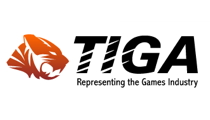This website uses cookies so that we can provide you with the best user experience possible. Cookie information is stored in your browser and performs functions such as recognising you when you return to our website and helping our team to understand which sections of the website you find most interesting and useful.
Business News Legal
Gaming sector reckons new approaches rather than three-strikes will combat piracy
By Chris Cooke | Published on Tuesday 29 October 2013
Although 60% of the UK’s game developers admit that piracy is a problem for their business, only 10% reckon that stricter enforcement of their intellectual property rights is a way to deal with the challenge, which puts the gaming sector at odds with the music and movie industries, which continue to put pressure on government to expand anti-piracy measures.
According to The Guardian, 87% of British gaming companies surveyed by their trade body TIGA said that new business models were the best approach to combat piracy, while 40% agreed that more educational initiatives explaining why copyright is good and piracy bad were also desirable.
But perhaps most interestingly, nearly three quarters of those questioned were against measures that could lead to persistent online pirates having their net connections slowed down or even suspended. As previously reported, those sanctions have been floated as possible final penalties in the ‘graduated response’ system for combating piracy that was set out in the 2010 Digital Economy Act but which has never actually been enacted.
Reps for the music and movie industries continue to lobby government to kick start the DEA measures, which would begin with the mailing of warning letters to suspected file-sharers, but the TIGA research suggests that the gaming sector isn’t interested in participating in the three-strikes party.
TIGA boss Dr Richard Wilson told reporters: “TIGA’s survey shows that many games businesses continue to find the most effective response to the problem of piracy is to adopt new business models, such as subscription-based services and free-to-play games. UK developers are taking the initiative to deal with the issue of piracy and are looking for new ways of delivering content and communicating directly with their consumers”.
For all the litigation and lobbying pursued by the music and movie sectors in the last fifteen years in a bid to combat online piracy, much of it achieving short-term successes, there are many in the music community who also reckon the long-term solution is better legit music services and decent copyright education beyond the generally woeful major label-led Music Matters-style marketing campaigns.






